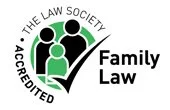




Bankruptcy on divorce
You may worry what will happen to the family business upon separation. There are a number of options available but the most suitable option will be dependent on a various factors:
For example, if the family home were jointly owned by the bankrupt and his spouse, the house cannot be transferred into the spouse's sole name without the Trustee in Bankruptcy's consent. Whereas negotiation can normally take place as to the percentage split of the equity in the family home the Trustee in Bankruptcy will assume a 50% interest if it is held as Joint Tenants.
Similarly the bankrupt is unlikely to be able to pay any lump sum or maintenance to the spouse, as the bankrupt's savings and much of his income will be the Trustee's instead, to be used to discharge his debts.
The best thing is to sort out as much as possible before the bankruptcy starts. Bankruptcy is often threatened before any action is taken. A prompt application to the family Court may allow appropriate Orders for financial settlement to be made before a bankruptcy takes effect. There remains a chance that the Trustee in Bankruptcy could try to have parts of the financial settlement set aside, especially if it appears certain transactions have occurred to frustrate the trustee's claims. Nonetheless having the financial settlement finalised before any bankruptcy will minimise the effects the bankruptcy has.
Even if the bankruptcy is already in effect, the bankrupt's spouse may be able to apply to the Court to annul the bankruptcy if the bankrupt is not in fact insolvent. Or in some circumstances the family Court may still Order the bankrupt to pay a lump sum or maintenance, if for example the bankrupt has a significant income despite being insolvent.
The bankrupt's pensions do not pass to the Trustee, so a financial settlement may minimise the effects of bankruptcy by focusing on sharing or splitting the pensions. The power of the family Court to make pension sharing Orders in relation to a bankrupt's pensions is unlikely to be affected by bankruptcy.
In some cases, bankruptcy can even work in the other spouse's favour. A person owed money as part of a divorce settlement can apply to make their former spouse bankrupt. Such a debt, plus an award of costs in family proceedings, can be paid by the bankrupt as part of his bankruptcy; and the bankrupt is not released from these debts once he is discharged from bankruptcy, meaning that he still owes them even after his period of bankruptcy has ended.
If these matters effect you please complete a contact form or call us directly on 01483 302 000 or email samantha.jago@www.rhw.co.uk
More information about divorce law:-







